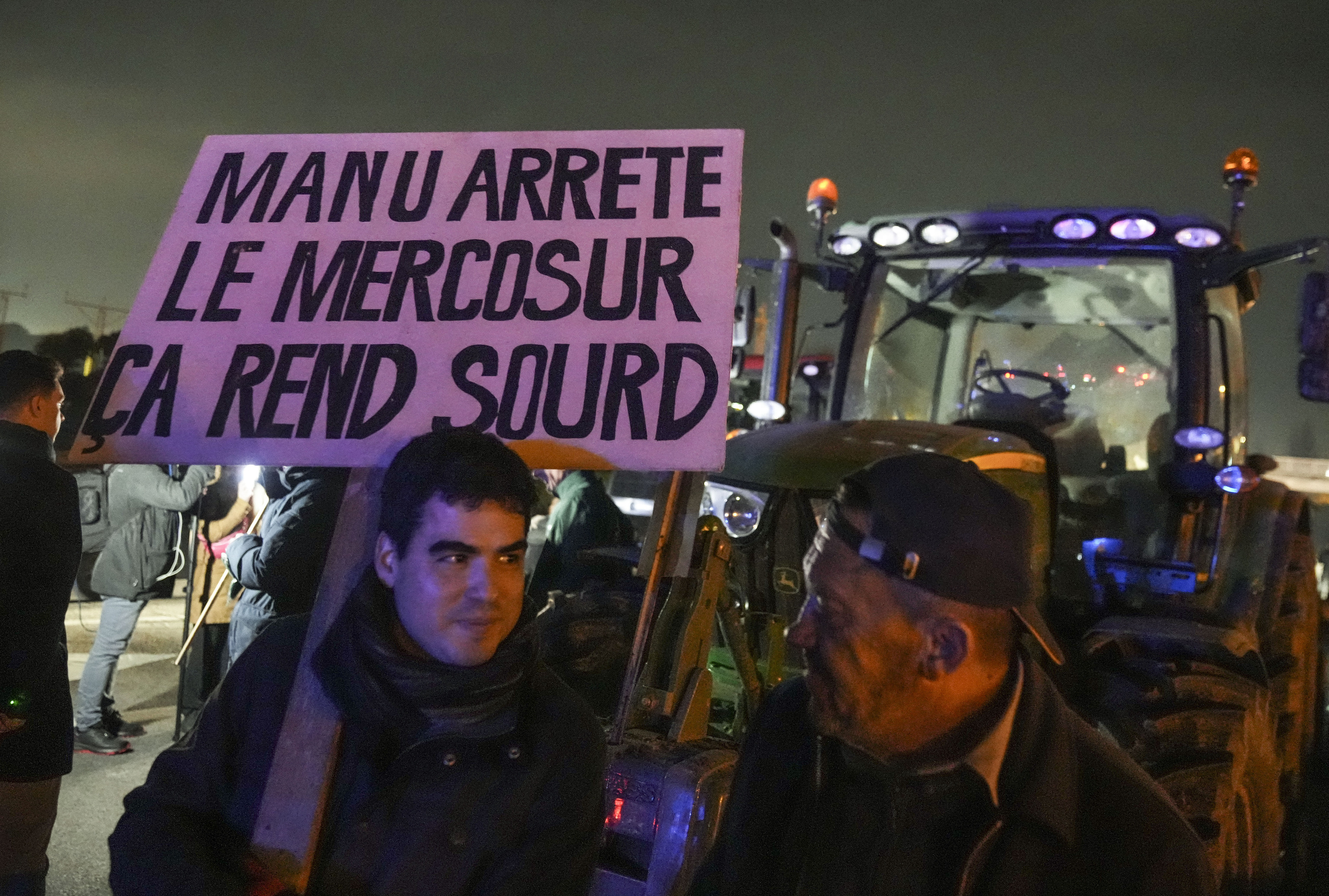It sounds like déjà vu. The revolt in the French countryside: second act. Almost a year after blocking roads and access to Paris for days, French farmers are mobilizing in protest against the free trade agreement (Mercosur) that aims to facilitate exchanges between Europe and America, which they claim harms them by reducing their competitiveness.
They also criticize that the promises made by the previous government a year ago have not been fulfilled. On Sunday, more than 80 actions were planned in various regions of France. Today there are mobilizations throughout the country: in Ardennes, in Arras (Pas-de-Calais), also in Strasbourg or Dijon.
For now, they do not plan to block roads as they did last year, as "the goal is not to prevent people from going to work, but for France to be aware of the situation," said Arnaud Rosseau, from the organizing union: the National Federation of Agricultural Workers' Unions (FNSEA).
"There were more than 80 actions this Sunday. They will intensify from Monday and Tuesday, especially at the Police Prefectures to draw the attention of the authorities," Rosseau said.
The government is aware of the mobilization power of the countryside and is trying to calm tensions, especially considering the extent of the protests last January. The French President, Emmanuel Macron, who is visiting Argentina, has stated that "France will not sign the Mercosur treaty": "It is bad for our agriculture," he said.
The Minister of the Interior, Bruno Retailleau, has warned that there will be "zero tolerance" in case of prolonged blockades. Retailleau has set the limits that the protest must not exceed: the blockade should not be prolonged, should not disrupt traffic, and should not cause damage.
On Tuesday, a concentration is planned at the toll booth on the Le Boulou highway, near the border crossing between southeastern France and La Jonquera, in Spain. The French union has stated that "farmers from other countries are joining the protests."
They believe that the Mercosur treaty (which has not yet been signed) allows the entry into the EU of products with phytosanitary conditions prohibited in Europe.
